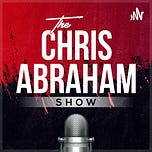Intro: The Warning Shot We Ignored
Stephen Colbert has been canceled. Not figuratively—literally. CBS is ending The Late Show, once the highest-rated late-night program in America. NPR and PBS just lost more than a billion dollars in public funding. The Corporation for Public Broadcasting has been defunded by a Congress no longer pretending to tolerate it.
Colbert was the court jester of the American elite. NPR was its cathedral. PBS its quiet chapel. Now, the architecture is collapsing.
And here’s the real tragedy: they cut off their noses to spite their faces.
Public media and progressive late night went all in on moral clarity and political crusading—believing that doing so would protect democracy, defend norms, and defeat Trump. Instead, they radicalized themselves into irrelevance. Instead of persuasion, they chose purity. Instead of modeling dignity, they projected grievance. And in doing so, they alienated the very people who might have defended them.
This isn’t just a budget fight or a programming shake-up. It’s the end of something deeper: the implicit social contract public media once had with America—that it could be trusted. That it could represent us. That it could love the country without hating its people.
I’m not surprised. I’m devastated. But not surprised.
Because I saw this coming.
And this essay isn’t just about Colbert. It isn’t just about NPR. It’s about how someone like me—a lifelong devotee of public broadcasting, of liberal values, of secular enlightenment radio—finally had to turn it off. For good.
You Had Me at Aloha
I was born in 1970—the same cultural moment, almost to the year, that National Public Radio emerged as a defining voice of American public media. My earliest memories include NPR’s warm tones wafting through our home in Hawaii. I grew up hearing Garrison Keillor’s Lake Wobegon stories, Click and Clack bantering about busted Volvos, and science specials that aired around holidays—Christmas, Passover, Easter, Ramadan. This wasn’t politics. It was affection. It was a cultural education steeped in a kind of secular liberal humanism: elite, yes, but benevolent.
It was NPR. And it raised me.
For decades, I was known among my friends as an NPR lifer—a WAMU 88.5 hag who attended live events, who donated, who scheduled his day around Morning Edition, Kojo Nnamdi, and Diane Rehm. From college in the late ’80s (when I didn’t even own a TV), to my Courthouse Arlington apartment in 1993, to Berlin in the late 2000s where I tuned into 104.1 FM—NPR Berlin, the only terrestrial English-language NPR broadcast in Europe—I kept the dial locked in. WAMU was the voice in my kitchen, in my car, in my shower.
And then, slowly and then all at once, it wasn’t.
From Modeling Values to Preaching Virtue
NPR used to model the world I aspired to: literate, calm, inquisitive. Liberal, yes—but with warmth and restraint. Elitist in tone, but in that kind aunt-with-a-sherry-glass way. The voices on air weren’t trying to radicalize me—they were trying to orient me. Teach me. Show me what serious, open-hearted discourse sounded like.
Even when the politics leaned left, there was space for self-doubt. Space for disagreement. NPR had curiosity. It had affection. It had storytelling. It had faith—in listeners, in Americans, even in the people it quietly disagreed with.
Now, it's grievance. It's rigidity. It’s constant moral panic. NPR stopped modeling virtue and started enforcing dogma. What was once lightly worn elitism has hardened into activist certainty. It’s no longer a place to hear from others—it’s a place to be told what to think.
The Trump Effect—and the Fatal Gambit
I believe NPR, like much of liberal popular media, made a high-stakes bet after 2016: that Trump was a mistake, and that if they could just yell loud enough—report hard enough, emote vigorously enough, shame relentlessly enough—he would be swept away in 2020 and never heard from again.
That didn’t happen.
And when he won again in 2024, after 34 felony convictions, after sexual assault accusations, after $500 million in judgments and being painted as a literal fascist—they couldn’t comprehend it. They didn’t account for how many Americans saw the media as the corrupt system, and Trump as the guy standing in front of it saying, “They’re not coming for me, they’re coming for you. I’m just in the way.”
That line wasn’t a punchline—it was a lifeline.
Trump’s victory wasn’t a bug in the system. He is the system now—because the system broke. The grievances he channels are real. His voters don’t see him as a savior. They see him as a middle finger. NPR never learned that. It tried to win the quarter horse race by galloping full speed from the gun, betting it could outlast the populists without breaking its own legs. But it did. It collapsed under its own moral urgency.
Grievance as Programming Strategy
Today’s NPR isn’t broadcasting to America. It’s broadcasting about America to a curated subset of America. It has become self-referential, self-soothing, and, ironically, anti-democratic in tone. It no longer believes in persuasion—only in purity.
Shows like On the Media, once my favorite, are indistinguishable from strategy sessions for political activists. 1A has lost its gentleness. Even Latino USA, which I still occasionally enjoy, is now one of the few exceptions to a rigid ideological monoculture. Weekend Edition with Scott Simon is the last appointment I have in my calendar that links me to the old spirit.
I miss the music segments. I miss the bluegrass. I miss the Irish folk hour. I miss storytelling that included bachelor farmers and Midwestern eccentrics and Appalachian poets. Now it’s all frame-breaking political theater.
From NPR to DeGiorno, From Rehm to Rogan? (Almost.)
Believe it or not, I never got into Rogan. But I now listen to podcasts all day long—longform interviews, strange spiritual programs, Coast to Coast AM archives. I crave escape. Not disinformation. Not extremism. Just non-weaponized air. Just voices that don’t make me feel like I’m a bad person for breathing.
Instead of Morning Edition, I wake up with Your Morning Show with Mike DeGiorno. He's right-wing. He’s partisan. But he’s warm. He’s funny. He’s human. He laughs. He doesn’t scold. He reminds me more of old NPR than NPR does.
And that’s the saddest sentence I’ve ever had to write.
Let Me Rest, Not March
Radio used to put me to sleep like a lullaby. Now NPR keeps me up like a siren. Instead, I queue up Art Bell. I watch Gutfeld!—yes, it’s dumb. That’s the point. He’s the only late night host not treating the audience like an HR liability. And for celebrity gossip? I skip Colbert’s heckle fests and turn to the Graham Norton Show—unserious, apolitical, and fun.
Remember when Stephen Colbert was brilliant? I do. I watched The Colbert Report religiously. The Daily Show too. But when COVID hit, something changed. The tub broadcasts. The grief monologues. The rage. Colbert was radicalized—and he never came back. He turned into a priest for the Church of Perpetual Outrage. And I lost a nightly ritual.
So yes, I miss NPR. I miss the voice in my kitchen. I miss the feeling of waking up in a country where the smartest people in the room still loved it—even while they tried to improve it.
That voice is gone now.
And I’m still grieving.
They Were Supposed to Keep Me
I’m a white guy who grew up in Hawaii, moved to D.C., studied American literature, did a year abroad focused on post-war American fiction, lived in Portland, and spent three formative years in Berlin. I lived on Capitol Hill for nearly a decade, and I’ve now spent fifteen years in South Arlington, Virginia. If you drew a profile sketch of the kind of listener NPR and PBS were made for—I’m it. I should have been a lifetime member. I should have paid a tithe to public broadcasting until I was 85 years old.
I’ve seen The Big Broadcast live. I’ve seen Garrison Keillor at Wolf Trap. David Sedaris, too. I was a Diane Rehm fanboy. I’ve gushed at her on early Twitter. I donated. I recruited friends. I told people they had to listen to Kojo.
I wasn’t just a listener. I was their choir.
If they’ve lost me?
They’ve lost the plot.
tl;dr
The provided text is a personal essay titled "Goodbye to the Voice in My Kitchen: How NPR and Public Media Lost Me," where the author laments the perceived transformation of National Public Radio (NPR) from a trusted source of calm, inquisitive, and culturally enriching content to one dominated by "grievance," "rigidity," and "moral panic." The author, a self-proclaimed "NPR lifer," describes growing up with the station's programs and maintaining a strong connection for decades, viewing it as a benevolent, if elitist, voice that fostered open discourse and curiosity. However, the essay argues that NPR, particularly after 2016, abandoned its prior approach in favor of activist certainty and ideological enforcement, leading to the author's disillusionment and search for alternative, less confrontational media. The author highlights the profound sense of loss, feeling that a significant part of his cultural upbringing has been irrevocably altered, concluding that if NPR has lost a listener like him, it has truly "lost the plot."














Share this post